10 Ways to Make a Living Through Self Publication

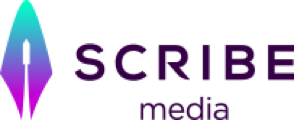
This article is written by Taylor Payne from Scribe Media. Her team helps empower authors by assisting with writing, publishing, and marketing their books.
Publication is a tricky business. When you have a book published either traditionally or through self-publication, there is almost no guarantee that you can recoup your expenses, let alone make a sizable profit.
Getting into the business of indie self-publishing requires grit, determination, and dedication. In addition, it also requires you, as the publisher, to invest a considerable amount in terms of capital. If you think you have what it takes to self-publish your book, be ready to take on significant risks - and perhaps reap big rewards.
Unlike traditional publishing, self-publishing has higher royalty rates. With technology giving authors and publishers a wide range of options for publishing, there is no better time to try your hand at self-publishing. But before you dive in head-first, make sure you do your due diligence and look up all your book publishing options.
If you’re considering self-publishing as a means of income, check out this list of how to make a living through self-publishing.
Royalties
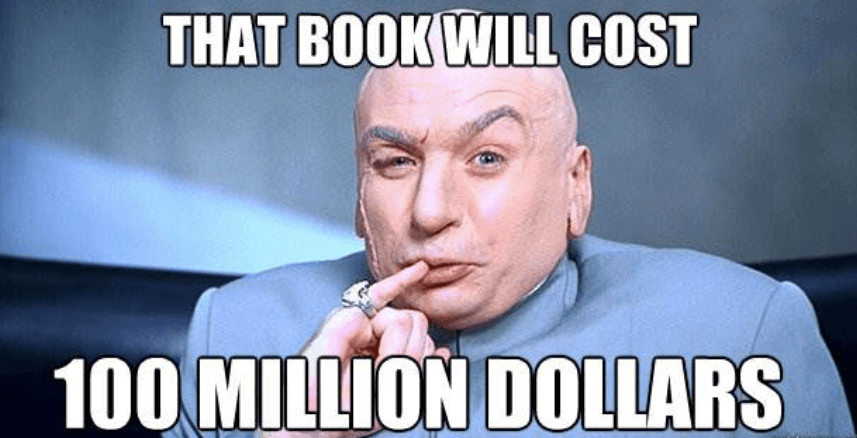
Book royalties are the traditional way for authors to earn from their published works. A book royalty is a set amount agreed upon that goes to the author when a book makes a sale. In traditional publishing, the author typically gets a 10% royalty. That means the author receives 10% of total sales.
With self-publishing, royalties can go as high as 70% of total sales. Many self-publishing sites enable authors to make a profit by publishing their ebooks on the site. If you have your book published in paperback and distribute it to bookstores, there are additional ways that you can compute the royalties.
As a self-published author, it is essential to note that self-publishing sites pay higher royalties than brick and mortar bookstores. This difference is because self-publishing sites such as Amazon charge lower distribution fees. In terms of royalties, be familiar with these two types of royalties:
Royalties on Retail Sales
Computing royalties based on retail sales means paying the author the agreed-upon percentage of sales based on retail value. For example, if your book sells for $10 per copy and you agreed to a 10% royalty on retail sales, then for every book sold, you get $1. So to earn $100, you need to sell 100 copies of your book.
Royalties on Net Sales
Compared to royalties on retail sales, computing royalties on net sales can be tricky. Computing royalties on net sales means that the author earns royalties from sales minus other factors such as discounts. For example, your book retails for $10. You, as the publisher, sell your book to the bookstore for $5; this is your net price. They will now base your royalties on this net price and not on the retail price charged by the bookstore.
Passive Income
Realistically, you cannot rely on royalties alone - especially when you are new to publishing. Think of book royalties as a source of passive income. No matter how big or small, book royalties will always be the gift that keeps on giving. Some authors find they are still earning royalties from books they published years ago.
Check the Competition
As mentioned earlier in this article, publishing your book is a tricky business. Besides all the factors involved in actually publishing a book, another issue you have to consider is the competition. Now, more than ever, there are multiple authors in every field imaginable.
To make a living through self-publishing, you need to know who you are up against. Read other authors’ books, consider how they relate to their audience, and ensure your prices are competitive. If your book is not well within a reasonable price range, you may risk future sales.
Also, see what's happening in the book market around the world. Grab PublishDrive's free report:
Keep Up With The Latest Trends & Publish Your Best
Just enter your details for the free insights.
Distribution
With self-publication, keep in mind that you are doing most of the work from the ground up. You will be directly involved in planning, editing, and distributing your books. Distribution means getting your books to platforms that your readers can access.
The good news is that as a distributor, you may be able to earn through your book sales depending on the agreement with the platform of your choice. The more platforms you use, the more exposure your books will have.
(With PublishDrive, distribute to places like Amazon, Apple, Google, and literally thousands of other bookstores. All you need is one dashboard. 👇)
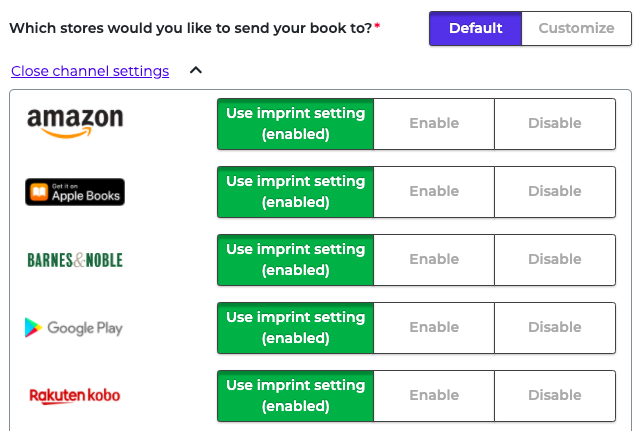
Marketing
A good book marketing strategy can help boost your book sales. If you want to make a living as a self-published author, get ready with your marketing wits. As you prepare to release your book, have a good marketing plan in place.
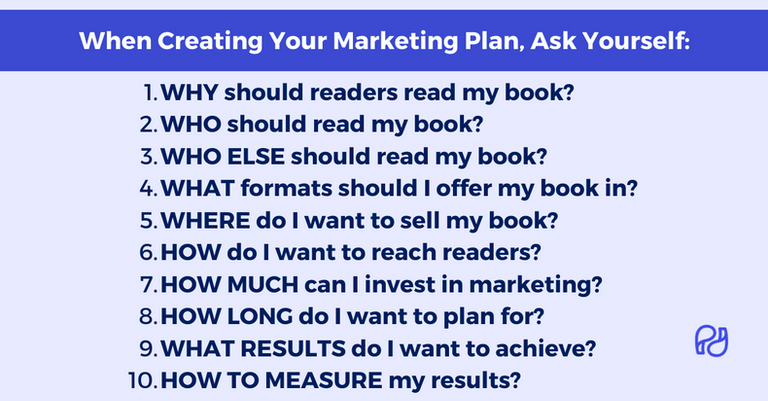
It is an author’s dream to have books fly off the shelves on the release date. To make this happen, put your marketing know-how to work. If you are unsure of how to market your book, seek the help of marketing professionals to help you develop an effective marketing plan.
Build Your Platform
If you want to make a living out of being a self-published author, you need to build your platform. What does that mean for you as an author and publisher? Simply put, your platform is the venue where you can connect with your current and prospective audience.
Tap into existing platforms to communicate with your fanbase. Popular platforms include social media sites and sponsored blog posts. When your audience sees your presence on multiple platforms, they can connect with you, which makes your book more relevant.
Keep in mind that you should not limit your author platform to social media sites. You also need a reliable email list and a good author site.
Have a Team
The term “self-publication” is often misunderstood to mean that you have to go at it alone. While this is true for most authors who are just starting out, you don’t have to go down this route.
As an author and publisher, it is your job to write the story and have it published. But if you need help with other aspects of being a self-published author, such as marketing and brand building, you can always hire professionals to do the work for you.
Just be mindful that this extra step will take a large amount of capital. Tap into your professional network to get the best value for your money. By having a team, you can delegate other aspects of your book and focus instead on the primary task at hand, writing.
Examples of roles to include on your team include:
First Readers
Like any product, your book has to be tested before it is mass-produced. As the name implies, first readers (or beta readers) are the people you entrust with the first access to your manuscript. Most of the time, first readers are close friends and family who can provide constructive feedback about the book. First readers are crucial, especially in the early stages of developing your book, no matter the genre.
Professional Editor
As a self-published author, oversee all the aspects of book production, including editing. It is your responsibility to edit your book and proofread it. However, you may also want to bring in a professional editor once you finished with your part in editing as a self-published writer. A professional editor may make the corrections and changes that you otherwise would have missed.
Graphic Artist

If you are a talented writer and a gifted graphic designer, then kudos to you! However, this may not be the case for most writers, and that's okay. If you need help designing your book cover or making illustrations, you can always secure the help of a professional graphic artist.
Schedule meetings with a professional graphic designer so that you can discuss your overall vision for your book. This way, you are still a part of the creative process.
You can also use a service like Canvas Photo Prints to showcase visually striking images related to your book's themes or cover art, making your promotional materials stand out in bookstores, events, or even online campaigns.
Social Media Manager
As mentioned earlier, make your social media presence count. However, you may not always have the time necessary to manage all of your pages. Consider employing the help of a social media manager. Although this can be an expense on your part as a publisher, hiring a social media manager can save you a lot of time. These professionals update your social media sites, respond to inquiries, and ensure that your presence across all platforms is current.
You may add or subtract as many people on your team as you see fit. As a self-published author, you are the boss, and you can determine who you need on your team. Don’t be afraid to delegate tasks to the right people, and don’t forget to compensate for them, too!
Take a Break
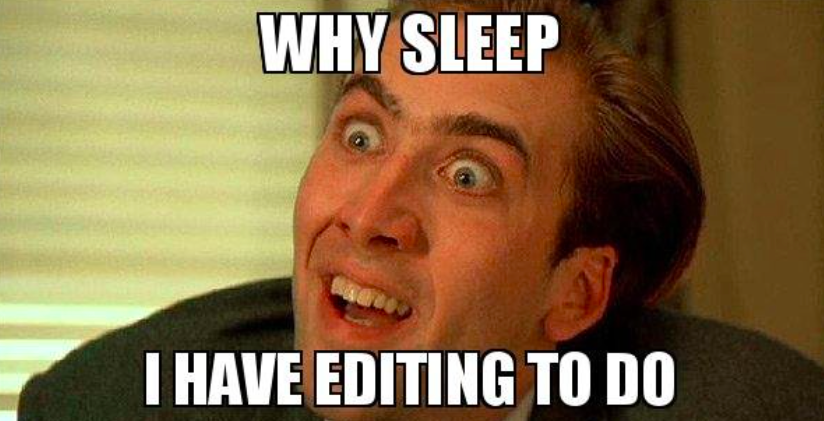
It is common for writers to experience writer's block. Don’t worry. This is entirely normal, especially if you fall into the trap of treating your writing as a job. There will be days when you will not feel like your most productive self. When days like this hit, it is okay to take a break and do something that inspires you.
Taking a break may be counterintuitive when we talk about making a living, but it is an undeniable need. Writers are prone to burnout, especially when they feel the pressure of meeting deadlines. As a self-published author, you set the deadlines, but it doesn't mean that there is no pressure. When you hit a wall in your writing, it’s okay to take a break. You’ll realize that you come back more productive afterward.
Set a Goal
One of the most significant advantages of being a self-published author is setting your own goals based on what you want to achieve. As your boss, you must select a goal and go for it. If you aim to have a book published, make a rough estimate of how many words you need to complete a book. Most authors would say that 60,000 words make for a satisfactory novel, while around 30,000 words can make up a short book of about 100 pages.
Set a goal for yourself to achieve every day. For example, plan to write about 500 words a day. With this goal, you will have a rough timeline for when you will have your book ready. Setting a goal is not only meant to help you finish your book - it will help you plan for your next steps, too.
Have Other Streams of Income
There is this notion that writers are starving artists. Unless this is the notion that you want to live out for yourself, it is highly suggested that you have other streams of income. One of the best ways to increase your royalties is by selling books internationally. Self-publication can be a costly venture. If you do not have enough capital to keep the venture going, you may find yourself in a dilemma about how to go about publishing your book.
It is therefore essential that you have another source of income. Again, every writers’ dream is to create a best-seller - one that will fly off the shelves. Although this has held for some writers, it is not the same reality for everyone.
As a writer, you should not simply write for the sake of money because you will most likely end up disappointed. Most authors have reached best-seller status after years of hard work. Although you can certainly achieve your dreams as a writer, keep in mind that you have to make many sacrifices to reach your goal. This sacrifice may involve staying at your nine-to-five job or investing in other ventures while you are still creating a name for yourself in the world of writing and self-publishing.
Join Indies Who Made 85% More Royalties

PublishDrive helped publish over 100K books so far (and helped indies boost sales by 85%). It's free to get started with global distribution.